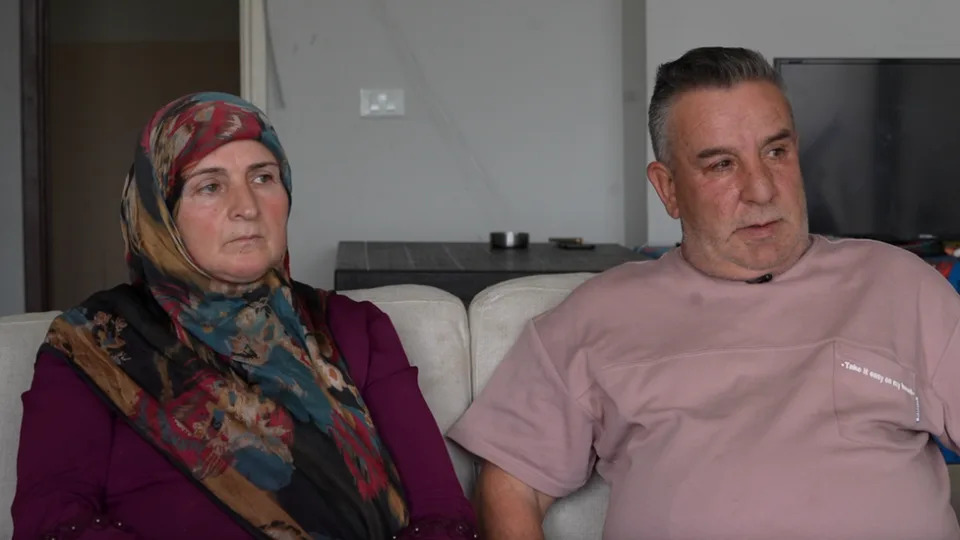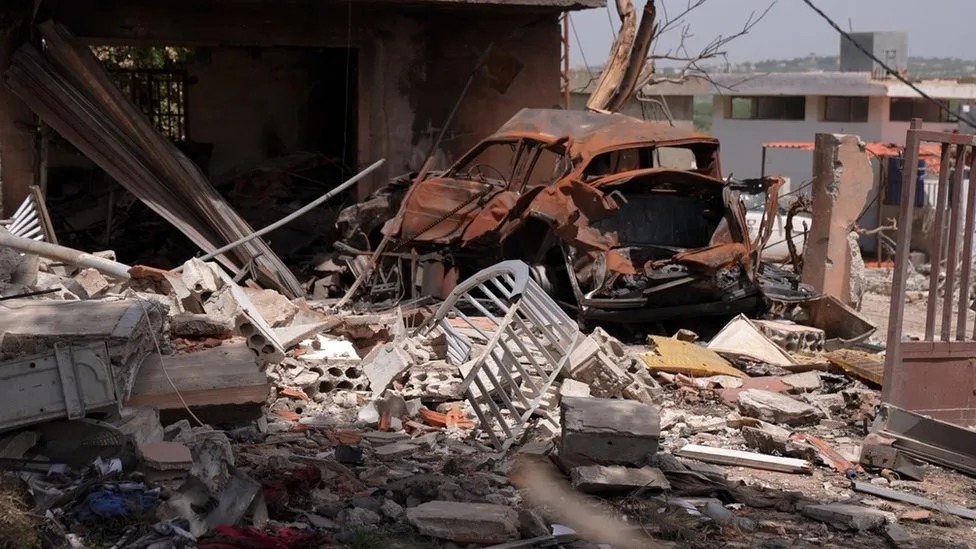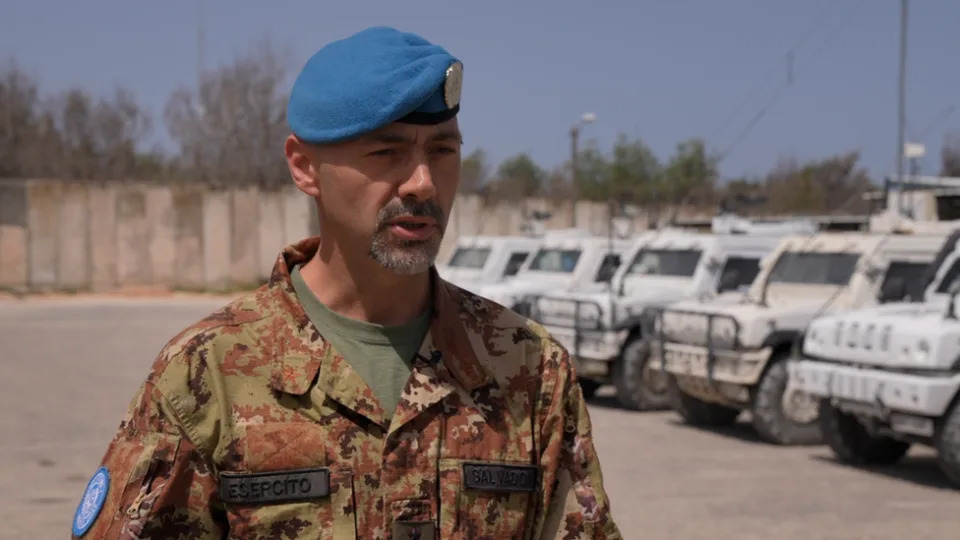Southern Lebanon: BBC sees air strike destruction in deserted towns”
Spiralling tensions and cross-border strikes which have killed more than 70 civilians in Lebanon have turned parts of south into ghost towns. Residents have fled, leaving their homes at risk of destruction. The BBC went on patrol with the UN’s peacekeeping force there to see what has happened. The huge crater containing a mangled mattress buried under a pile of dust and stone is all that’s left of the building that stood on this spot just days ago. “We call it ‘the pool’,” said a Lebanese army officer at Yarine – a border town on the front line of the one of the region’s most dangerous conflict zones. Yarine is just 1km (0.6 miles) from the UN-designated Blue Line – the highly volatile, unofficial boundary between Israel and Lebanon. In every town near the line, there are similar sights: buildings levelled or vanished into craters; next to them, buildings which have been damaged, then rows of houses intact – followed by more craters. In Alma el Shaab, about 4km west of Yarine, stand the remains of what appears to have been a gated villa with parked cars – destroyed, apart from a fence now surrounding a pile of rubble. The windows of houses nearby were all smashed from the force of the explosions.
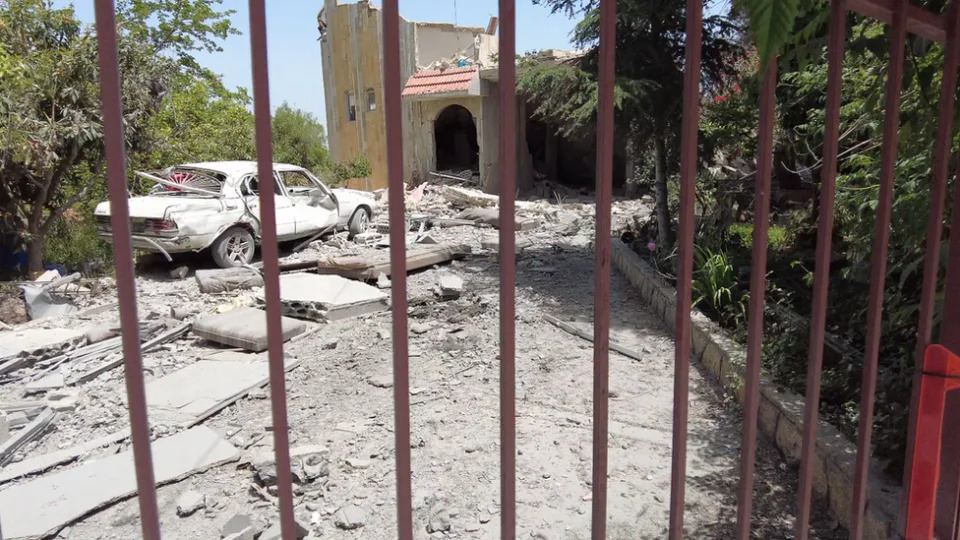
More than 90,000 civilians have fled on the Lebanese side of the border [BBC]
“We are paying the price of all of this,” lamented the 75-year-old owner of the villa, Nadim Sayyah. Mr Sayyah said he used to keep the lights on all the time in the hope that might spare the family home from being hit. “Everything is lost, the house, the belongings, and the cars. But I will return as soon as I can, even if I were to live in a tent there.” A soldier there pointed out that “one missile did all of this”. Israel has been carrying out strikes on southern Lebanon almost daily since Hezbollah – the powerful Lebanese Shia Islamist group – fired rockets at Israel on 8 October in support of Hamas in Gaza, triggering an escalating series of attacks and counter-attacks.
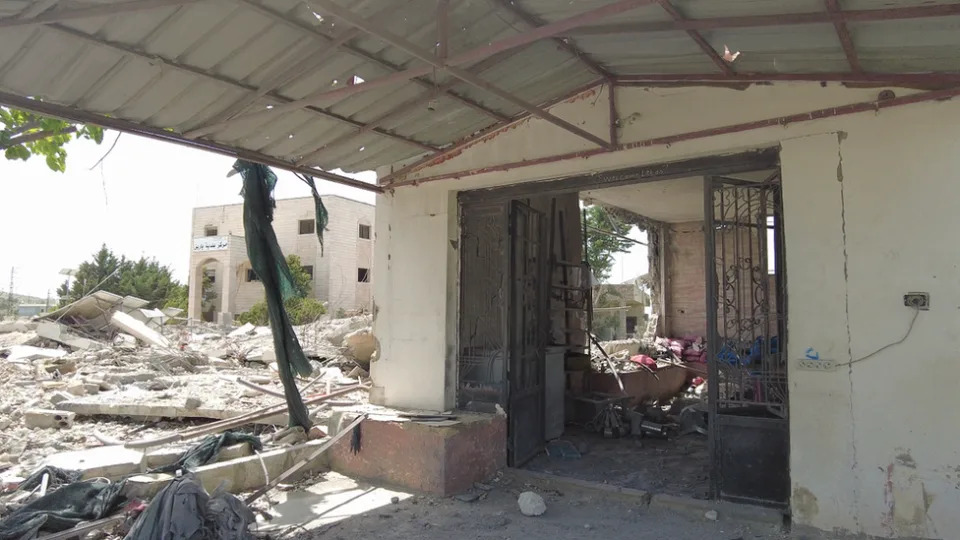
The latest fighting between Hezbollah and Israel has been going on for nearly six month [BBC]
Because of the danger – three reporters (one from Reuters and two from Al Mayadeen) have been killed in strikes in south Lebanon which their news organisations and Lebanon have blamed on Israel – the BBC team visited the border area with the UN peacekeeping force, Unifil. Israel has said it does not target journalists. Unifil has been in south Lebanon since Israel’s pullback and eventual withdrawal following its invasion of 1978. In a not-too-distant past, Unifil proudly emphasised that it had overseen the longest period of calm between Lebanon and Israel – stretching to 16 years since the last war between Hezbollah and Israel in 2006. As the BBC team was filming, what seemed to be Israeli drones could be heard in the sky. Moments later, plumes of thick black smoke appeared in the distance, an apparent Israeli strike. It was not possible to know what had been hit. The Israeli army says it targets Hezbollah fighters and infrastructure and retaliates to attacks on Israeli army bases in northern Israel. But some Lebanese officials, including the caretaker prime minster and Speaker of Parliament, have accused it of implementing scorched earth tactics to make the whole area uninhabitable.
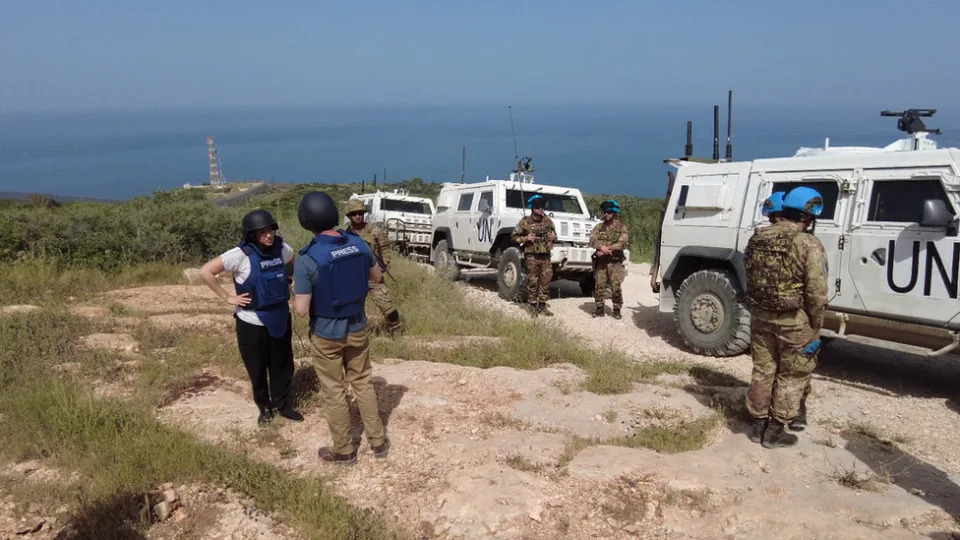
UN peacekeepers went with the BBC team to the front line areas [BBC]
Right now, there is no sign of life in many southern villages. People have fled, leaving towns deserted. About 90,000 Lebanese have become displaced, according to the International Organization for Migration (IOM). On the Israeli side, about 80,000 people have been evacuated. Israel’s defence minister has said Israelis from northern communities cannot expect to return home until Hezbollah has been driven back from the border. The Lebanese town of Aita el Shaab – just 700m (2,300ft) from Israel – has suffered the heaviest damage so far. On the day of our visit, Israel said it launched 40 strikes on the town. “We know that our house has been badly damaged, but it is still standing – as far as we know,” said Hussein Jawad, who comes from Aita el Shaab. Hussein, a construction worker, left his house with his seven children and his wife in October. They are now staying in an apartment on the outskirts of Beirut. “We didn’t expect it all to last that long. We thought it would just be a couple of days,” his wife Maryam said. “We know it will still take a while.”
